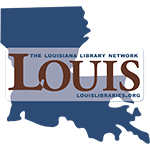Chapter 2.1 "Theory Exercise" Assignment (MLO 2.3)
Instructions
This assignment addresses COs 1, 3, and 4 and MLOs 1 and 3.
A theory has to be able to be proven false (Fedorek, 2019). It is the research that will determine the reliability and the validity of the theory, not the other way around. Once the research is completed, the theory can be modified as many times as needed in accordance with the results of the research. The more research is conducted on a theory, and the more a theory is validated, the more reliable it becomes across the field of study it is referencing. If a theory cannot be proven false, it is validated, but that does not mean that questions stop being asked or that research stops being conducted.
For example, “Darwin’s theory of evolution has yet to
be falsified. There are numerous unanswered questions, but as time goes by,
scientists are discovering more and more evidence to support the
theory” (Fedorek, 2019, p. 159).
There are experiences in our lives that are completely within our control in
how they influence our opinion and shape our perspective. There are also those
experiences that we have absolutely zero control over that affect us equally, if not more so, in our personal journey. We don’t get to choose our parents, or
our siblings. We don’t get to choose where we live or how we dress for the
first few years of our lives. These experiences shape us into who we will
become later in life and how we will form our own opinions based on these
perspective-building events. What are some other variables that you can think
of that are affecting your ability to form an opinion? Are they based on
empirical facts, or just “facts” as best as you can tell?
- Take a few moments and think about it. Then have a class discussion about your findings. Pay close attention to those experiences that are similar to your own, but also pay even more attention to those that are not.
We all have an opinion on just about everything. We base those opinions on our personal experiences throughout our own perspectives. We gather information by whichever means are convenient to us, and we form our opinions based on our observations. And we believe in our heart of hearts that we are right in our convictions of what we know because we have limited experience. But there is a difference between having an opinion and being an expert. And in the world of Criminology, it’s not what you know, it’s what you can prove with empirical fact – evidence based on observable experimentation. That means forming a proper theory, establishing a process for testing that theory, observing, and gathering data through the proper scientific experimentation, analyzing, and interpreting that data objectively, and reporting on what the data says regardless of whether or not it confirms the theory or disproves it outright.
